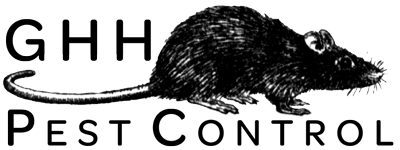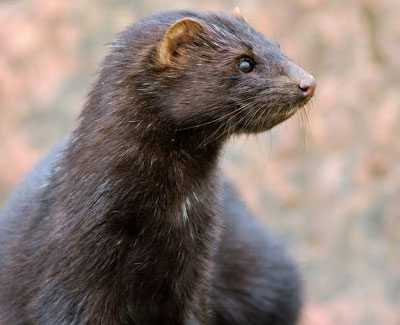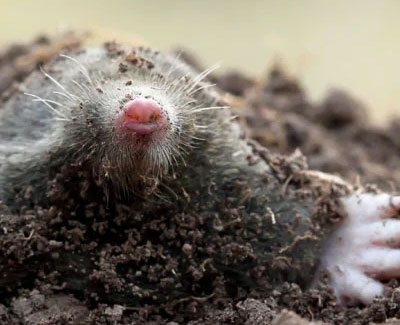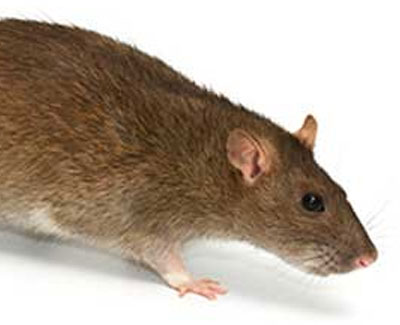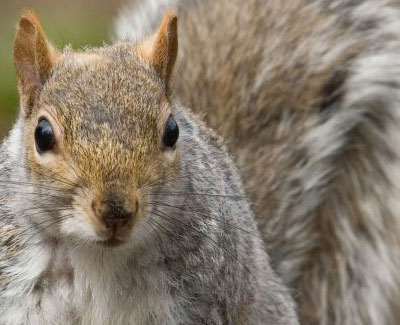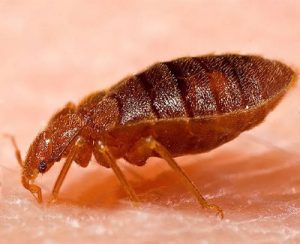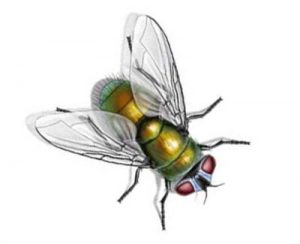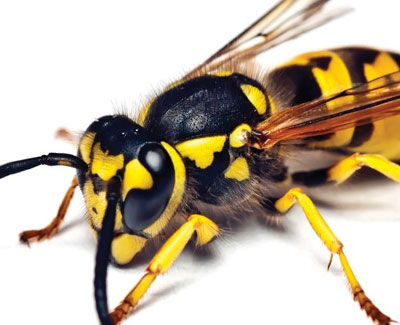Wasp & Nest treatment
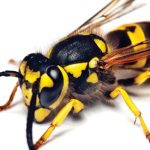
General Information
Types of Wasps
The Common Wasp and the German Wasp are the most common species in the UK, capable of delivering painful stings. These 2 species have yellow and black bodies, about 17mm long and they like building nests in sheltered places with easy access to the outside. Social wasps live in big colonies and are considered dangerous. Solitary wasps, on the other hand, are bigger but less dangerous because they don’t live in colonies.
Hornets
Hornets are dangerous because they can sting and bite. Whole colonies of around 700 workers can attack a perceived threat in defence, stinging repeatedly. They are larger in size than wasps, growing to approximately 40mm. They have orange abdomens that have brown stripes. Hornets feed on sap and other small animals and are mainly found in woodlands. They can easily make barns, trees and attics their home.
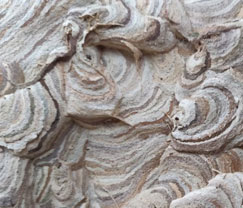
Wasp Nest Removal
Only £45
Further nests £15
(same property & the same day)
If You Discover A Wasps nest
When you first discover the presence of a wasp nest in the home or business premises, it can be something of a traumatic experience. The initial thoughts are likely to be focused on the safety of the family or the workforce, and that’s why we offer a 7 day service for your complete peace of mind.
If there are children in the vicinity, or people with dangerous allergies, you will want to know that the situation is being handled by an experienced, knowledgeable professional, and that’s exactly what you will get with GHH Pest Control wasp nest removal service.
When we arrive at your property / premesis first thing we do is to locate the wasps nest. Usually it’s signified by a constant flow of wasps coming from a hole in brickwork, air vent or fascia boards however you may also find them nesting in sheds, compost heaps, roof spaces and have been seen under the bases of children’s playhouses. Our wasp nest removal team will select the most appropriate form of treatment for the individual circumstances. We carry out a risk assessment before proceeding, with an emphasis on the safest strategy.
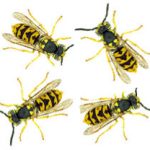
Treatment
In most cases we treat the wasp nest by applying a strong insecticide to the entrance to the nest. Wasps which have been outside will return to the nest bringing the insecticide in with them, an activity that will continue for only few hours. This fast, effective treatment is safe to pets and children inside the home.
Activity in and around the nest will gradually die out to the point where there will be no sign of activity at all. That’s normally achieved within 24 hrs. This is a quick, clean method which has been used by our experts for many years. Once the nest’s inhabitants have all been killed, it will not be re-used by any wasps in the future and can be safely removed if needed at a later day.
Wasp Nest FAQ's
The insecticide used is a professional product and not available to the public. The powder is an off white colour and applied under pressure using a pump to destroy the nest. We use specialist extendable equipment that can reach up to the majority of high nests.
Occasionally after the treatment the wasps can become agitated before they have all been affected by the dust, we advise customers to keep all windows and doors closed for several hours after the treatment.
The wasp nest is often dead within few hours of treatment however it can take up to 24 hours for all the returning wasps to be killed by the insecticide.
Wasps will build nest from scratch every year. The Queen wasp emerges in mid-April from hibernation looking for a new nest site for a colony, often in loft spaces, sheds, garages, roof eaves and cavity walls. The first brood of 10-20 adult workers (sterile females) will increase to 3,000-5,000 individuals during the summer. The workers can often be heard making a scraping noise in attics as they chew dried wood and mix it with saliva to increase the size of the nest. Wasp nests can make a resonating noise as the workers use their wings to fan air around the nest to regulate its temperature.
A typical wasps nest will last from May until November.
The removal of the nest after treatment or old ones are not necessary because unlike bees, wasps will not re-use an old nest. However if you find the presence of an old wasp nest in your loft alarming, it can be removed if required.
WE COVER THE FOLLOWING AREAS:
West Sussex | Hampshire | Surrey
GHH PEST CONTROL
We're here to help and offer advice and estimates ...
Call Us Now On 07983 791689 for Expert Pest Control Advice
- AVAILABLE 7 DAYS A WEEK
- OVER 30 YEARS EXPERIENCE
- PROFESSIONAL & SPECIALIST QUALIFICATIONS
- RSPH 2 UK, ND Game and wildlife management UK
- Certificate in urban pest management NZ
- DOMESTIC, COMMERCIAL & AGRICULTURAL
- TREATMENT OF ALL TYPES OF PESTS
- FULLY INSURED
- Forestry Commission firearms use and Marksmanship UK
